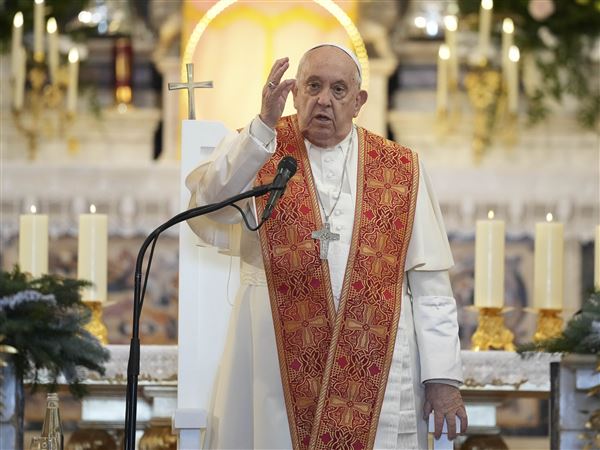If five years ago Bob Inglis’ optimism about building a coalition of conservatives to enact a carbon tax seemed far fetched, today it’s a study in faith.
Which is fitting, as Mr. Inglis, who describes losing his South Carolina Congressional seat to a Tea Party candidate in 2010 as a “spectacular faceplant,” was then reborn as a climate activist.
The experience was productive enough that Mr. Inglis now wonders, after suffering the pitchforks and torches, “if it isn’t necessary for the fire to go all the way into the Oval Office.”
From those ashes, he believes, conservatives can rise to tackle climate change instead of denying it.
He advocates a revenue-neutral swap — a tax on carbon, whose revenue will be used to offset the burden of payroll taxes, dollar for dollar. Imports will be taxed. Energy subsidies will be axed, (as will environmental regulations which will become unnecessary, he argues). And the market will call the shots in the right direction, he said.
“My hope is from here to go into moon shot mode,” Mr. Inglis said at a lecture at the University of Pittsburgh last week.
“Does it take a catastrophe?” he was asked.
“I hope not,” Mr. Inglis replied. But it sure would be a lot easier to rally if climate change had boots and could march through Red Square, he said.
Mr. Inglis grew up in a South Carolina town where his father worked at a paper mill. His mother — “the ultimate company mom” — had taught him to say things like, “90 percent of what comes out of the stacks is steam” and “smells like bread and butter to me.”
During his first stint in Congress, from 1993 through 1998, Mr. Inglis called climate change nonsense. He knew nothing about the science, he now admits.
He attributes his conversion, in part, to a nudge (or a gentle shaming of sorts) from his son. That dynamic has informed the strategy of republicEn, where Mr. Inglis is executive director. It’s an organization sprung from his Energy and Enterprise Initiative at George Mason University in Virginia, which recruits young conservatives and asks them to spread the word to their parents and grandparents. They’ll listen, Mr. Inglis reasons, because they’re predisposed to love the messengers anyway.
Five years ago, when Mr. Inglis first founded the initiative, he framed his ideas more as a hedge against a future risk, something that would appeal to conservatives, he thought. But today, he talks about floods in Florida and coral bleaching -— the climate change that’s already here, already alarming.
He’s encouraged that Secretary of State Rex Tillerson supported a carbon tax as CEO of ExxonMobil and downplays President Donald Trump’s climate change denials. That might have just been for the applause, Mr. Inglis argues.
Even at a time when both the president and the head of the Environmental Protection Agency don’t view climate action as priority, or even a concern, Mr. Inglis isn’t the only conservative voice pitching the idea.
Recently, a group of Republicans — many from President George W. Bush’s administration — have put forward a carbon tax plan that sets the price at $40 per ton of carbon dioxide and redistribute the revenue to all Americans with a Social Security number. The group pushing the so-called carbon dividends plan has fanned out across the editorial pages of national newspapers and has even made an appearance at the White House last month, prompting reassurance from press secretary Sean Spicer that the president is not considering a carbon tax.
Anya Litvak: alitvak@post-gazette.com or 412-263-1455.
Correction (made March 26, 2017): An earlier version of this story misstated the measurement of weight used for the carbon tax plan. It is $40 per ton.
First Published: March 27, 2017, 4:00 a.m.


















